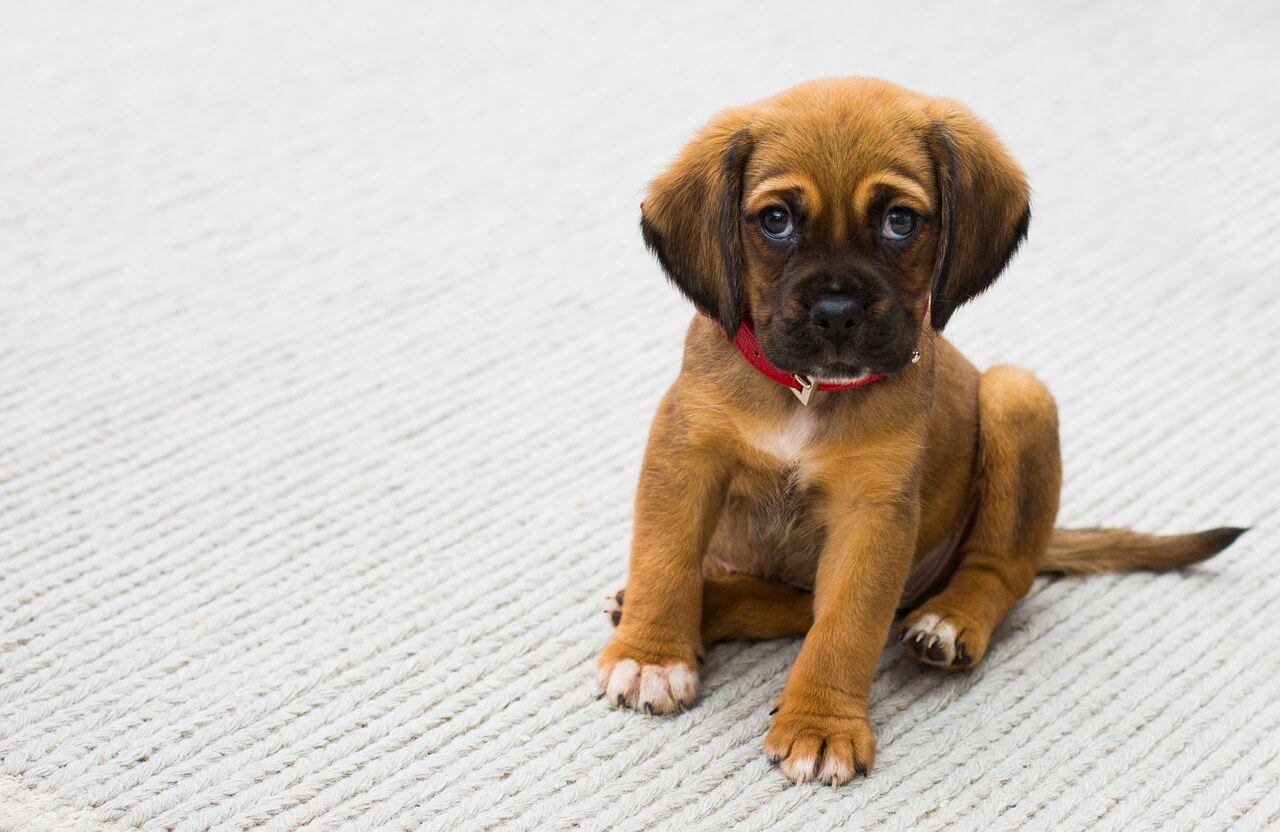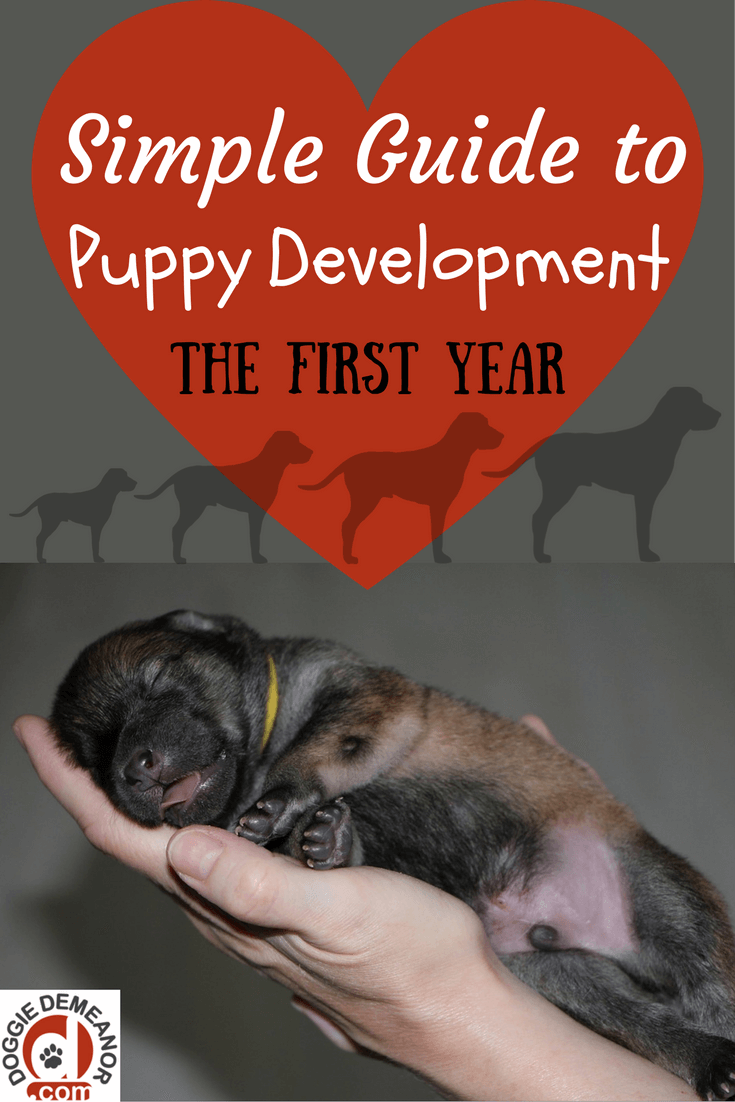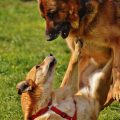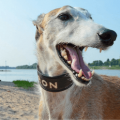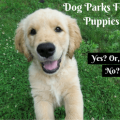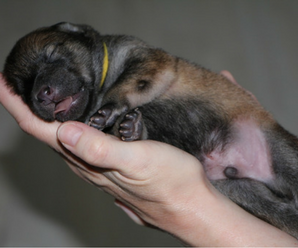 There is nothing more adorable than a puppy. And, there is evidence to suggest that puppies evoke a caring response from us humans through their adorable looks. Yep, that’s right; most of us find puppies simply irresistible. I’m sure I don’t need to explain why…how else would we all know and understand the meaning of the phrase “puppy dog eyes”?
There is nothing more adorable than a puppy. And, there is evidence to suggest that puppies evoke a caring response from us humans through their adorable looks. Yep, that’s right; most of us find puppies simply irresistible. I’m sure I don’t need to explain why…how else would we all know and understand the meaning of the phrase “puppy dog eyes”?
I’m making an immense effort right now to forget what a terror my big guy was with his mouthing and biting. For a while there I thought the kids would never get through a playing or petting session without exclaiming, “ouch!” He was a tough case when it came to the puppy biting! Thankfully, we got off easy when it came to potty training. 🙂
Each puppy is different in how quickly they mature. Two puppies from the same exact litter can mature at a completely different rate. Just like we cannot make the generalization that all babies and children mature at the same rate, such is also the case with puppies. The individual and unique character of each little pup will play a part.
We can say, however, that breed and size can make somewhat of a difference. The majority of large breeds mature slower than small ones. Some of the giant breeds can have puppy-like characteristics up until two years old, and sometimes even beyond.
A Puppy’s Developments & Milestones
Birth – 2 weeks:
- Puppies are blind and deaf
- Puppies can smell, taste, and feel
- Time is spent feeding from the mother, and snuggling with her and littermates to keep warm
- Mother will need to lick her puppies not only to keep them clean but also to stimulate them to evacuate body waste
2 – 3 weeks:
- Puppies eyes open
- Puppies begin to hear sound
- Begin to actively use their noses to smell scents
- Begin to play with their littermates
- Puppies need their senses stimulated at this stage and should begin to be handled by people for a few minutes each day
3 – 4 weeks:
- Reflexes develop and puppies may startle by loud noises, touch, or sudden movements
- Senses become stronger; they begin to move their ears in the direction of sound, sight becomes sharper, tails wag, and barking communication begins
- They begin to learn from their experiences and surroundings
- The mother begins weaning, and puppies can be introduced to mushy food
- Begins to play with mother, siblings, and objects, as well as interact with people
- First baby teeth start to come in
 5 – 7 weeks:
5 – 7 weeks:
- They are all about playing with their siblings!
- Through play-biting they develop bite inhibition (learning to moderate the strength of their bite)
- Physical coordination improves
- Start to show more independence
- Usually fully weened by 7 weeks
8 – 12 weeks:
- Puppies are now old enough to be taken from the mother and given to their forever homes
- From this point thru about 16 weeks is where puppies learn the fastest and are most open to new experiences
- Care should be taken as puppies can also develop fears during this stage if they are not presented to new experiences in fun and positive ways
- Socialization is important (but gently, and carefully)
12 – 16 weeks:
- Baby teeth have started falling out and the second set of teeth are now arriving
- Puppy safe chew toys are a must as a puppy will begin chewing on anything and everything!
- By 4 months a puppy’s brain is 3/4 of the way to its full adult development
 4 – 6 months:
4 – 6 months:
- Get geared up! Behavior issues begin…it’s the terrible two’s! (for a dog)
- Consistent training and socialization are very important
- Major growth spurt will occur reaching near adult height, and a puppy’s adult coat will probably grow in
6 – 8 months:
- Consistent training, exercise and mental stimulation will be vital as energy will be high, boredom will come easy, and chewing will still be an issue
- In addition to consistent training, continued socialization is important in this stage to prevent behavioral problems into adulthood
- Puppy will begin to reach sexual maturity and behaviors such as humping may occur
- Demeanor toward other dogs may change, seemingly defensive or barky as he works out how to communicate with them
8 months – 1 year:
- All adult teeth will come in
- Will have reached at least 80% of adult size and weight
- Chewing may still be an issue (teeth and jaws are stronger as well)
- For some breeds the rate of growth may slow down while other breeds may still have some growing to do
Remember, don’t give up on your pup during the terrible two’s stage! Sadly, this is where many people get frustrated and give their dog up instead of continuing to work with them. But, it’s only a stage! Working through it with consistent training, socialization, and lots of exercise and playtime will produce a nice calm pup in the end.
